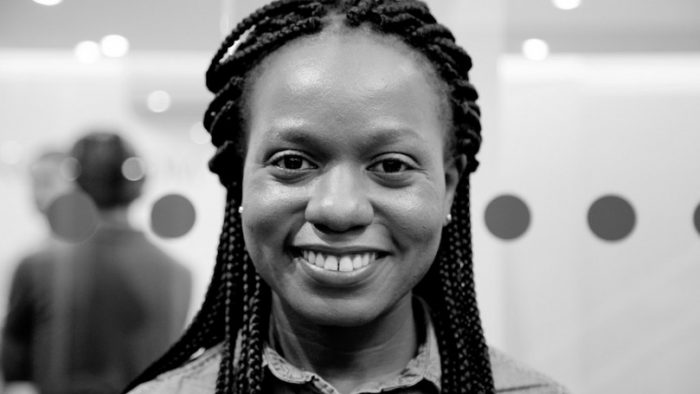Bridget takes on the world of coding
Our voices 28 April 2017

Bridget speaks about ‘Code your Future’ a computer programming course for asylum seekers and refugees
I recently got my papers. People say that it’s all fine as soon as you get your papers. But it’s not. The transition period is really hard, so I was not in a good head space.
But I found out about ‘Code your Future’, a not-for-profit start-up offering a 6-month web development programme for refugees and asylum seekers, written about on the UNHCR website. I was kind of excited when I first heard about it, but at the same time, I was a bit sceptical: I didn’t know what to expect, so there was a bit of a fear of the unknown. I sent them an email, and Germán, who runs it, got straight back to me. I was so pleased to get on the course so quickly.
The course involves 30-40 hours a week, so it’s pretty intense, like a full-time job. It takes place on a Sunday and we have to do coursework during the week. We practice HTML and CSS at the code camp. It’s like learning a secret language. I could right now start talking using all the technical terms, and you probably wouldn’t know what I was talking about! That’s why it’s really nice to talk with other people who understand you. You all speak the same language.
There are fifteen lovely mentors who give us advice and, each week, there’s someone new from a different tech organisation, and we all (students and mentors) keep in touch on a thing called Slack, which is a bit like a sort of Facebook chat, which means that if we are struggling with any of the assignments there’s always someone 24 hours a day who can help you out. When you work, you’re not alone; you’re part of a team.
For example, I was really struggling with JavaScript and one of the mentors knew this and called me up and asked “What can I do to help?” We ended up going through it together over the Christmas break, for three days. And so now I know JavaScript, and could do the same for someone else. I could help someone new to the course if they were struggling.
Everyone on the course is at different levels of claiming refugee status. Some people have papers, some don’t. One person left when he got status. The course is a testing thing. You’ve got to be mentally and physically strong to do it, as it’s so intense: you learn so much in such a short chunk of time. I’m actually going to start again, I want to give it a second chance, and I’m so happy they are giving me a second chance.
It’s perfect because they give you the building blocks: they teach the basics. It’s like building lego, you need the foundations and then you add skills, like adding brick by brick. I even developed a game. I never thought I would develop a game, but it’s actually quite simple. It’s amazing when you see the results, I was like “Oh my God, did I actually do this?!”
It’s so nice how we can get involved in various different projects. I would like to be a back-end developer. I’m interested in how things work behind the surface, the cogs and wheels. I had done an IT degree back home but it was my first time on this course doing the front-end developing, so it was challenging.
I’d love to be able to develop an app to help refugees find information. Maybe I could help get Room to Heal better known about!
I’d really recommend the course to anyone. Not only does it help with skills, but you get to do a variety of projects and make a portfolio on a thing called github. This really boosts your confidence, especially if you feel like a failure, and feel like you can’t do anything. It really helps your CV and can impress future employers. They help you with networking and finding a job afterwards. There’s a real need for people who can code, and we’ll be able to code! There’s a lot of respect for coders. When I tell people about the course, they’re like “Oh my God, you can code? That’s so cool!” That feels good.
I know something good is going to come out of it.